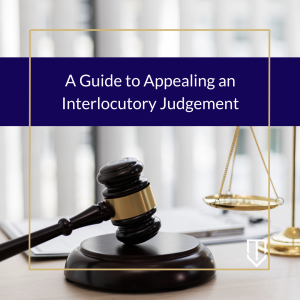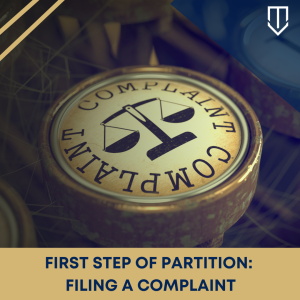 Does the appeal of an interlocutory judgment automatically stay the partition case?
Does the appeal of an interlocutory judgment automatically stay the partition case?
No. An appeal of an interlocutory judgment in a partition case is not stayed unless the appellant files an undertaking. (CCP §§ 917.4, 917.5.) Normally, appeals of court judgments result in an “automatic” stay that restrains the lower trial court from issuing any more orders until the appeal process is completed.
There, are however, certain types of orders where this rule is inapplicable. Instead, if the appealing party wants to stay lower court proceedings, they must post a bond to the court called an “undertaking.” Interlocutory judgments of partition fall into this category because they are orders that dispose of real property.
 California Partition Law Blog
California Partition Law Blog


 When there are two or more owners of a piece of real property who are unable to come to an agreement on how to divide the property, any co-owner of the subject property may petition the court to partition the property. This is known as a partition action. Generally, the decision of a court to partition the property is merely the first step in the partition process. Although a partition action may sound quite simple, it is a complex process that requires extensive accounting and patience.
When there are two or more owners of a piece of real property who are unable to come to an agreement on how to divide the property, any co-owner of the subject property may petition the court to partition the property. This is known as a partition action. Generally, the decision of a court to partition the property is merely the first step in the partition process. Although a partition action may sound quite simple, it is a complex process that requires extensive accounting and patience.